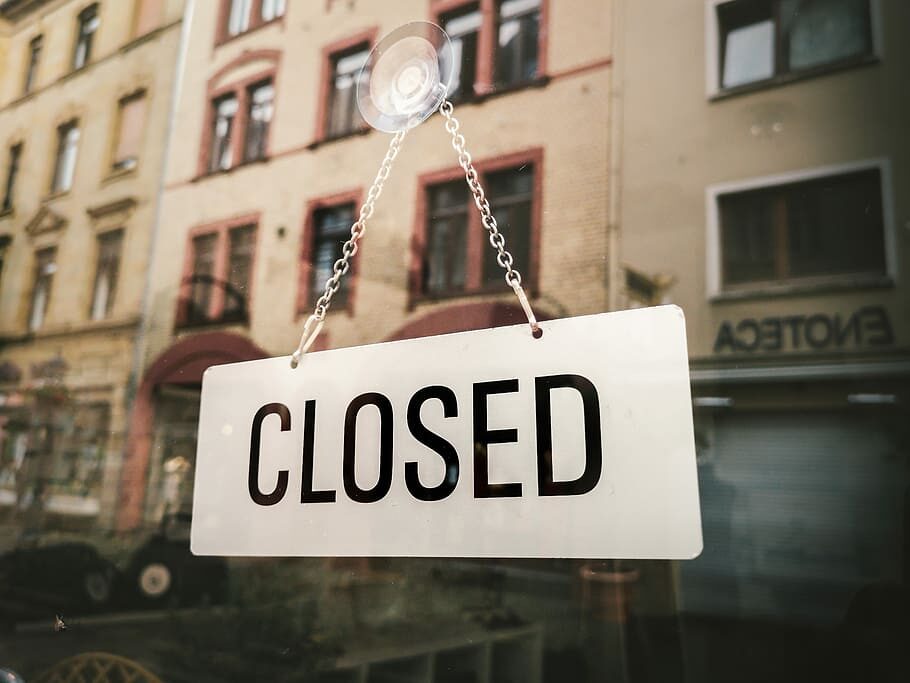Jalees Ahmad, London
Engulfed in the coronavirus pandemic, the world has been forced into making drastic changes in lifestyle to combat this virus. With such drastic measures being set into place, man has begun looking at the world in a different light.
Difficult times have led many to cling on to God and an idea of a saviour who can come and save the world from this chaos has become even more popular. With reality hitting hard, the root of such thoughts lies within the fact that though mankind has advanced in technology, we are still dependant on a higher being.
With Wuhan’s lockdown having just ended, the majority of countries are still quarantining. Society is now realising the importance of cleanliness and self-hygiene. We have realised that the real heroes in our society are not the actors who appear on the big screen, footballers or athletes, but they are the doctors, nurses, shop employees and staff, all of whom are now being defined as “key workers”.
It took the world to witness a global pandemic to make this reality certain and ever clearer.
With so much in our lives changing, many people have taken to Twitter and other social media to share and express how this unprecedented period in their lives has been difficult and how so much has changed so fast.
Amidst all this is chaos, as lockdown methods increase, I cannot help but express that the world has, unknowingly, become more inclined towards the Islamic way of life.
For a long time now, the Muslim world has been under the microscope, with many raising their objections against the teachings of Islam.
France, for example, almost 10 years ago, passed a law banning the wearing of burqas, hijabs and niqabs.

It has been recorded that on multiple occasions, Muslim women have been asked why they wear a face covering, and though the answer is and has always been that “it is what my religion teaches” or “it is a personal choice”, in many countries, it has led to political controversies and proposals for a legal ban.
Now, ironically, the world is somewhat forced to wear a face mask as a safeguard. Although there is little research to suggest that a person who wears a mask will be safe from the virus, it has simply become a personal choice as people have said that it makes them “feel safe”.

Ironically, the government of the same country that put a ban on Muslim woman wearing a scarf has stepped in to regulate face masks and is now taking extra action around its supply.
Even casinos, pubs and bars are closed. Some countries, such as Greenland, have even completely banned alcohol (www.theguardian.com/world/2020/mar/29/alcohol-sales-banned-in-greenland-capital-during-lockdown).
From the most recent survey, conducted between April 2017 and March 2018, around 53% of adults said that they go to pubs, bars and/or clubs in their free time (www.statista.com/statistics/942580/going-to-pubs-bars-clubs-by-age-uk-england).

The very pubs and bars that were once the centres of the UK’s population are now closed, with the outcome of what can only be thought of as a resemblance to the time when the Muslims, upon hearing that alcohol is now forbidden, broke their alcohol vases, draining the gutters of Medina with alcohol.
Combatting this pandemic and protecting oneself from contracting this virus, WHO stated guidelines and measures for everyone to follow – to clean hands regularly, wash hands with soap and water, dry them thoroughly and to use alcohol-based handrub if one does not have immediate access to soap and water.
Following these guidelines, society has become ever more concerned about cleanliness and hygiene.
Islam, 1,400 years ago, taught us about the importance of cleanliness and the Holy Prophet Muhammadsa even stated that “Cleanliness is half of one’s faith”. The Holy Quran, on multiple occasions, has told Muslims to take good care of cleanliness.

“Allah loves those who turn to Him and loves those who keep themselves clean.” (Surah al-Baqarah, Ch.2: V.223)
And again:
“O you who believe! When you intend to offer the prayer, wash your faces and your hands (forearms) up to the elbows, wipe your heads and (wash) your feet up to the ankles. (Surah al-Maidah, Ch.5: V.7)
And, as highlighted by our beloved Khalifa in his Friday Sermon, such measures are already a part of the Islamic life: “… those who perform the ablution at least five times a day, are given a chance for maintaining good hygiene”.
With eggs, milk and bread, among other things, on high demand and becoming a “rare commodity”, society is compelled to lead simple lives and eat less and that which is only necessary. Again, a teaching taught to Muslims is being acted upon today as governments encourages citizens to only shop for “basic necessities” and not to exceed limits. (www.bbc.co.uk/news/uk-52097797)
The Holy Prophetsa, while mentioning the qualities of a believer, stated that a believer is satisfied with little food.
On another occasion, it is reported from Hazrat Anasra that the Holy Prophetsa did not eat his meals in a big tray. (Sahih al-Bukhari)
It is also narrated by Hazrat Aishara, the noble wife of the Holy Prophetsa, that “The Messengersa of Allah would never eat to his fill.” (Sahih Muslim)
The Quran, again, being the source of guidance in our lives, states:
“O children of Adam! look to your adornment at every time and place of worship, and eat and drink but exceed not the bounds; surely, He does not love those who exceed the bounds.” (Surah Al-A‘raf, Ch.7: V.33)
Before this pandemic, it was very common for people to shake hands as a way of greeting each other. Now, due to this pandemic, it has become socially acceptable not to shake hands, including with the opposite sex, something which Islam has emphasised from the start, in light of teachings related to morality and safeguard between sexes.
People today are busier in charity work and helping those in need by delivering foods to the vulnerable, who are unable to leave their homes. Others have started checking in, more than ever, on their neighbours to see if they are doing well, both of which are highly encouraged in Islam as God says in the Holy Quran:
“And worship Allah and associate naught with Him, and show kindness to parents, and to kindred, and orphans, and the needy, and to the neighbour that is a kinsman and the neighbour that is a stranger, and the companion by your Side, and the wayfarer.” (Surah al-Nisa, Ch.4: V.37)
On one occasion, it has been reported that the Holy Prophetsa said, “The companion who is the best to Allah is the one who is best to his companion. And the neighbour that is the best to Allah is the one that is best to his neighbour.” (Jami‘ al-Tirmidhi)
A healthy lifestyle along with eating and drinking the “right” things are essential in Islamic traditions. The coronavirus has very emphatically shone a light on our lifestyle, especially with regard to what we eat.

On the Science Daily website, it is stated:
“Based on their genomic sequencing analysis, Andersen and his collaborators concluded that the most likely origins for SARS-CoV-2 followed one of two possible scenarios.
“In one scenario, the virus evolved to its current pathogenic state through natural selection in a non-human host and then jumped to humans. This is how previous coronavirus outbreaks have emerged, with humans contracting the virus after direct exposure to civets (SARS) and camels (MERS). The researchers proposed bats as the most likely reservoir for SARS-CoV-2 as it is very similar to a bat coronavirus. There are no documented cases of direct bat-human transmission, however, suggesting that an intermediate host was likely involved between bats and humans.” (https://www.sciencedaily.com/releases/2020/03/200317175442.htm)
With this pandemic, we have become much careful of the foods we consume. Islam, being the complete way of life, has enjoined upon Muslims to eat that which is good.
“O ye who believe! Eat of the good things We have provided you, and render thanks to Allah if it is He whom ye worship.
“He has made unlawful to you only that which dies of itself, and blood, and the flesh of swine, and that which the name of any other than Allah has been invoked. (Surah al-Baqarah, Ch.2: V.173-174)
In Sahih al-Bukhari, it has been reported that the Holy Prophet Muhammadsa forbade consuming the meat of beasts having fangs.
With such emphasis and such guidance, Islam embodies a complete code of conduct, enabling man to live the best version of life.
We can only hope and pray to God Almighty to help us get through these difficult times and help humanity understand that the code of conduct and guidelines of Islam are not to ground a person, but to help humanity at large and live the best and healthiest lifestyle.

